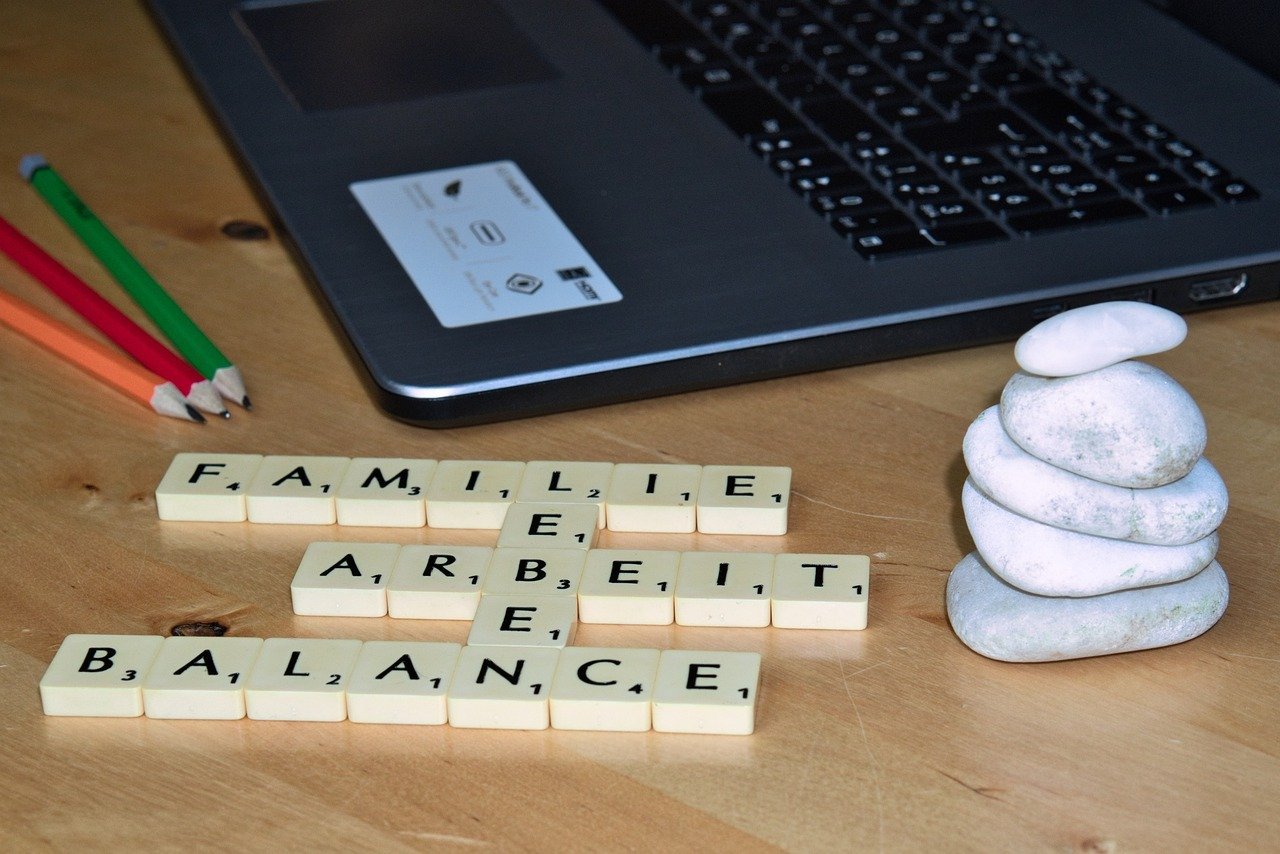Work-Life Balance Bliss: Creating Time for What Matters Most

Table of Contents
- The Importance of Work-Life Balance: Finding Harmony and Happiness
- Identifying Priorities: Making Time for What Truly Matters
- Effective Time Management Strategies: Maximizing Productivity and Personal Life
- Establishing Boundaries: Setting Clear Expectations and Creating Balance
- Self-Care and Wellbeing: Nurturing Yourself to Achieve Work-Life Balance
The Importance of Work-Life Balance: Finding Harmony and Happiness
Work-life balance is a concept that has gained significant attention in recent years, and for good reason. In today’s fast-paced and demanding world, finding harmony between work and personal life is essential for our overall well-being and happiness. Here are some reasons why achieving work-life balance is crucial:
- Health and Well-being: Striking a balance between work and personal life helps prevent burnout, reduces stress levels, and promotes better physical and mental health. When we neglect our personal lives in favor of work, it can lead to chronic stress, which can have detrimental effects on our overall well-being.
- Relationships: Maintaining a healthy work-life balance allows us to invest time and energy into our relationships. When we prioritize our personal life, we can nurture our relationships with family, friends, and loved ones. Strong relationships provide emotional support, enhance our happiness, and help us navigate through life’s challenges.
- Productivity and Effectiveness: Contrary to popular belief, working longer hours does not necessarily equate to increased productivity. When we have a balanced life, we are more focused, energized, and motivated, leading to improved performance both at work and in our personal endeavors.
- Personal Growth: Having time for activities outside of work allows us to pursue our passions, hobbies, and interests. Engaging in activities we love not only brings us joy but also fosters personal growth and self-discovery. It is important to nourish our minds and souls to lead a fulfilling life.
- Quality of Life: Ultimately, achieving work-life balance enhances our overall quality of life. It allows us to create memories, experience new things, and find joy in the simple pleasures. When we prioritize what truly matters to us, we can live a more meaningful and enriched life.
Finding work-life balance is a personal journey, and it may look different for each individual. It requires setting boundaries, managing time effectively, and making conscious choices. Prioritizing self-care, learning to delegate, and practicing mindfulness are some strategies that can help create the desired equilibrium.
In conclusion, work-life balance is not a luxury but a necessity for leading a happy and fulfilling life. By finding harmony between our professional and personal lives, we can experience greater satisfaction, improved well-being, and overall bliss.
Identifying Priorities: Making Time for What Truly Matters
With the fast-paced nature of today’s world, it can be challenging to find a balance between work and personal life. However, by identifying our priorities and making time for what truly matters, we can create a sense of harmony and fulfillment in our lives.
Here are some strategies to help you identify your priorities and make time for them:
- Reflect on your values: Take some time to reflect on what truly matters to you. What are your core values? What brings you joy and fulfillment? Understanding your values will help you prioritize your time accordingly.
- Set clear goals: Once you have identified your values, set clear goals that align with them. These goals will serve as a roadmap, guiding your actions and decisions. Remember to set both short-term and long-term goals to ensure a balanced approach.
- Learn to say no: It’s important to recognize that you can’t do everything. Learn to say no to tasks and commitments that do not align with your priorities. This will free up time for the things that truly matter to you.
- Create a schedule: Develop a schedule that reflects your priorities. Block out dedicated time for work, personal activities, and relationships. Having a well-planned schedule will help you stay organized and ensure that you are making time for what truly matters.
- Practice self-care: Taking care of yourself is essential for maintaining a healthy work-life balance. Prioritize self-care activities such as exercise, relaxation, and hobbies. When you prioritize your well-being, you will have more energy and focus to dedicate to what matters most.
- Delegate and outsource: Recognize that you don’t have to do everything on your own. Delegate tasks at work and home to free up time for your priorities. Consider outsourcing certain responsibilities if it aligns with your values and budget.
- Regularly reassess: Life is constantly evolving, and so are our priorities. Regularly reassess your goals and values to ensure they still align with your current situation. Adjust your schedule and commitments accordingly to maintain a healthy work-life balance.
By implementing these strategies, you can identify your priorities and make time for what truly matters in your life. Remember that work-life balance is a continuous journey, and it requires ongoing effort and self-reflection. Embrace the process and enjoy the rewards of a balanced and fulfilling life.
Effective Time Management Strategies: Maximizing Productivity and Personal Life
In today’s fast-paced world, finding a balance between work and personal life can be challenging. However, with effective time management strategies, you can maximize productivity and still have time for what matters most. Here are some tips to help you achieve work-life balance bliss:
- Set Clear Goals: Start by defining your priorities and setting clear goals. This will help you stay focused and avoid wasting time on tasks that are not important.
- Create a Schedule: Develop a daily or weekly schedule that includes time for work, personal commitments, and relaxation. Stick to your schedule as much as possible to make the most of your time.
- Delegate Tasks: Learn to delegate tasks that can be done by others. This will free up your time to focus on more important and high-priority tasks.
- Eliminate Time Wasters: Identify and eliminate activities that are time-consuming and do not contribute to your goals or well-being. This could include excessive social media use, unnecessary meetings, or multitasking.
- Practice Time Blocking: Use time blocking techniques to allocate specific blocks of time for different tasks or activities. This helps create structure and prevents distractions.
- Take Regular Breaks: It’s important to take regular breaks throughout the day to recharge and maintain productivity. Short breaks can actually improve focus and concentration.
- Prioritize Self-Care: Make self-care a priority by taking care of your physical and mental health. This can include regular exercise, getting enough sleep, and practicing relaxation techniques.
- Learn to Say No: Don’t be afraid to say no to tasks or commitments that do not align with your priorities or values. It’s okay to set boundaries and protect your time.
- Practice Mindfulness: Incorporate mindfulness practices into your daily routine to help manage stress and improve focus. This could include meditation, deep breathing exercises, or journaling.
- Seek Support: Don’t hesitate to seek support from colleagues, friends, or family members. Delegate tasks or ask for help when needed to prevent feeling overwhelmed.
By implementing these effective time management strategies, you can create a better work-life balance and make time for what truly matters to you. Remember, it’s not about doing more, but rather doing what’s important with the time you have.
Establishing Boundaries: Setting Clear Expectations and Creating Balance
Creating a work-life balance requires setting clear expectations and establishing boundaries in order to prioritize what matters most. It’s essential to create a healthy separation between work and personal life to prevent burnout and maintain overall well-being. Here are some strategies to help you achieve a harmonious balance:
- Define your priorities: Start by identifying your core values and what truly matters to you. Determine the areas of your life that deserve the most attention and set clear priorities accordingly.
- Set realistic goals: Establish achievable goals both in your professional and personal life. Break them down into manageable tasks and create a timeline to ensure you stay on track.
- Create a schedule: Design a schedule that accommodates your priorities and commitments. Allocate specific time blocks for work, family, hobbies, self-care, and any other important aspects of your life.
- Communicate with your employer: Have an open and honest conversation with your employer about your work-life balance goals. Discuss any potential adjustments or flexible working arrangements that can help you achieve them.
- Establish boundaries: Clearly define the boundaries between work and personal life. Avoid checking emails or taking work calls outside of designated work hours. Communicate these boundaries with colleagues to ensure they respect your personal time.
- Practice self-care: Make self-care a priority. Set aside time for activities that help you relax, recharge, and maintain your mental and physical well-being. This may include exercise, meditation, hobbies, or spending quality time with loved ones.
- Learn to delegate: Recognize that you can’t do everything on your own. Delegate tasks at work and share responsibilities at home. This will help lighten your workload and create more time for the things that truly matter.
- Disconnect regularly: Take regular breaks from technology and disconnect from work-related devices. Dedicate uninterrupted time to connect with loved ones, engage in hobbies, or simply enjoy moments of solitude.
Remember, achieving work-life balance is an ongoing process that requires consistent effort and adjustment. By setting clear expectations, establishing boundaries, and prioritizing what matters most, you can create a fulfilling and balanced life where you have time for both work and personal enjoyment.
Self-Care and Wellbeing: Nurturing Yourself to Achieve Work-Life Balance
In our fast-paced and demanding world, work-life balance can often feel like an elusive goal. However, it is essential for our overall wellbeing and productivity. One crucial aspect of achieving work-life balance is prioritizing self-care. Taking care of yourself physically, mentally, and emotionally is vital to maintaining a healthy balance between work and personal life. Here are some strategies to nurture yourself and create a harmonious work-life balance:
- Set boundaries: Establish clear boundaries between work and personal life. Learn to say no to additional tasks or commitments that may overload your schedule.
- Practice mindfulness: Incorporate mindfulness and meditation techniques into your daily routine. These practices help reduce stress, increase focus, and improve overall mental health.
- Take breaks: Allow yourself regular breaks during the workday. Stepping away from your desk and engaging in activities you enjoy can help recharge your energy and enhance productivity.
- Engage in physical activity: Regular exercise is not only beneficial for your physical health but also for your mental wellbeing. Find an activity you enjoy and make it a part of your routine.
- Prioritize sleep: Adequate sleep is crucial for your overall health and productivity. Establish a consistent sleep schedule and create a relaxing bedtime routine to ensure quality rest.
- Cultivate hobbies: Engaging in activities you love outside of work can bring a sense of fulfillment and joy. Make time for hobbies that recharge your spirit and allow you to explore your passions.
- Connect with loved ones: Building and maintaining strong relationships with family and friends is essential for your emotional wellbeing. Set aside dedicated time to spend with loved ones and nurture those connections.
- Delegate and ask for help: Don’t be afraid to delegate tasks or ask for assistance when needed. Learning to rely on others can alleviate stress and free up time for self-care activities.
Remember, achieving work-life balance is an ongoing process that requires conscious effort. By prioritizing self-care and nurturing yourself, you can create a fulfilling and harmonious life where you have time for what matters most.


























